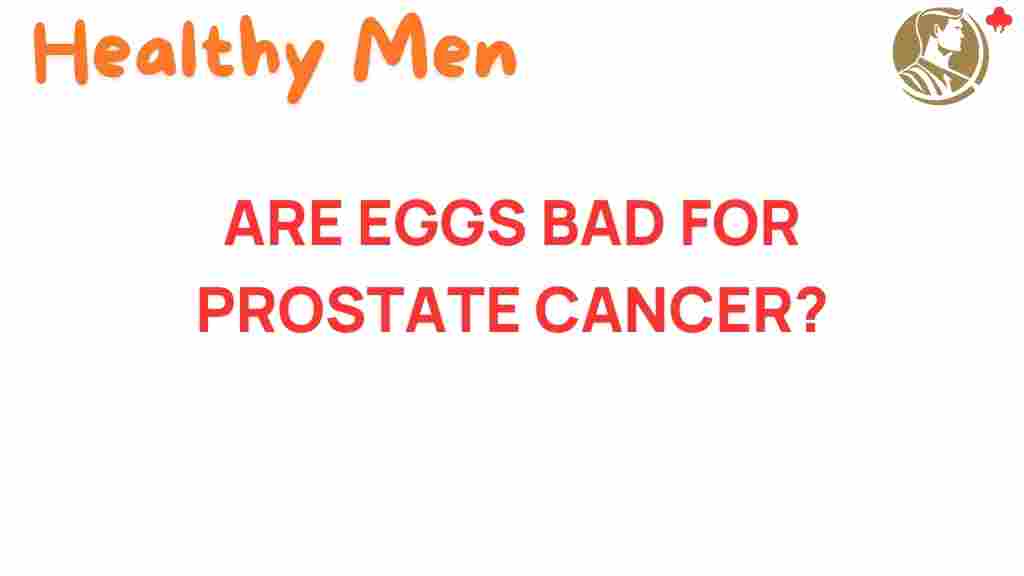Are Eggs a Hidden Risk Factor for Prostate Cancer?
Prostate cancer is one of the most common cancers affecting men worldwide, raising concerns about various dietary factors that may contribute to its development. Among these factors, eggs have come under scrutiny due to their nutritional composition and potential health risks. This article explores the relationship between eggs, prostate cancer, and overall men’s health, focusing on diet, nutrition, cancer prevention, and lifestyle choices.
The Nutritional Profile of Eggs
Eggs are a staple in many diets around the globe, known for their rich nutrient profile. A single large egg contains approximately:
- 6 grams of protein
- 5 grams of fat
- Vitamin B12, Vitamin D, and riboflavin
- Choline, important for brain health
Despite their nutritional benefits, the concern surrounding eggs primarily revolves around their cholesterol content. Each egg contains about 186 mg of cholesterol, which has led to debates regarding their impact on cardiovascular health and cancer.
Understanding Prostate Cancer
Prostate cancer develops in the prostate gland, and its growth can be influenced by various factors, including genetics, age, and lifestyle choices. Research has shown that diet plays a significant role in the risk of developing prostate cancer. A diet high in red and processed meats, dairy, and unhealthy fats can elevate that risk, while fruits, vegetables, and omega-3 fatty acids may offer protective benefits.
Are Eggs Linked to Prostate Cancer?
The relationship between egg consumption and prostate cancer risk is complex and still under investigation. Some studies suggest a potential link between high egg consumption and an increased risk of prostate cancer, while others indicate no significant correlation. Here are some key findings:
- Cholesterol and Cancer Risk: The cholesterol found in eggs may influence cancer cell growth. Some research indicates that high cholesterol levels can promote tumor growth, particularly in prostate cancer.
- Insulin-like Growth Factor (IGF): Eggs may elevate levels of IGF, a hormone linked to increased cancer risk. Elevated IGF levels have been associated with the development and progression of prostate cancer.
- Antioxidants: Eggs contain antioxidants such as lutein and zeaxanthin, which may help protect against certain types of cancer. However, the overall impact on prostate cancer risk remains unclear.
Dietary Choices and Prostate Cancer Prevention
While eggs can be part of a balanced diet, moderation is key. Here are some dietary choices that may help reduce the risk of prostate cancer:
- Increase Fruits and Vegetables: A diet rich in fruits and vegetables provides essential vitamins, minerals, and antioxidants that may protect against cancer.
- Opt for Healthy Fats: Replace saturated fats found in red meats and full-fat dairy with healthier options like olive oil, nuts, and avocados.
- Incorporate Omega-3 Fatty Acids: Foods high in omega-3s, such as fatty fish and flaxseeds, can help reduce inflammation and may lower cancer risk.
- Limit Processed Foods: Processed meats and high-sugar foods can contribute to obesity and inflammation, both linked to cancer.
Making Healthy Lifestyle Choices
Beyond diet, certain lifestyle choices can influence prostate cancer risk and overall men’s health:
- Regular Exercise: Engaging in physical activity can help maintain a healthy weight and reduce cancer risk.
- Avoid Smoking: Smoking is a known risk factor for various cancers, including prostate cancer.
- Limit Alcohol Consumption: Excessive alcohol intake has been linked to several health issues, including cancer.
- Regular Health Screenings: Early detection through regular screenings can improve outcomes for prostate cancer.
Food Safety Considerations
When including eggs in your diet, food safety is crucial to prevent foodborne illnesses. Here are some tips:
- Store Eggs Properly: Keep eggs refrigerated to prevent bacterial growth.
- Cook Eggs Thoroughly: Ensure eggs are cooked to a safe temperature to kill potential pathogens.
- Avoid Raw Eggs: Consuming raw or undercooked eggs can increase the risk of salmonella infection.
Troubleshooting Dietary Concerns
If you’re concerned about the potential risks of eggs in your diet but still want to enjoy them, consider the following:
- Limit Intake: If you’re worried about cholesterol, limit egg consumption to a few per week.
- Mix Sources of Protein: Incorporate a variety of protein sources, such as legumes, fish, and lean meats, to balance your diet.
- Consult a Healthcare Professional: If you’re unsure about your diet and cancer risk, consult a nutritionist or healthcare provider for personalized advice.
Conclusion
The relationship between eggs and prostate cancer is still being studied, with conflicting evidence surrounding their role in men’s health. While eggs are a nutritious food, moderation and a well-rounded diet are essential. Emphasizing fruits, vegetables, healthy fats, and regular physical activity can contribute to cancer prevention and overall health.
Always remember that lifestyle choices play a significant role in men’s health, and making informed dietary decisions can greatly impact long-term wellness. For more information on cancer prevention and healthy living, visit this resource.
For additional insights on nutrition and health risks associated with prostate cancer, check out our article on healthy lifestyle choices for men.
This article is in the category Nutrition and created by healthymen Team
